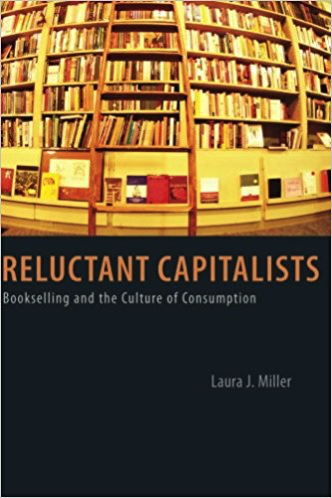The 380s:  Commerce, Communications & Transportation. I was tempted to read something about trains when I got here, but then I spotted this, a book about bookselling (with an implicit critique of capitalism in its title!). As my dream in life has been to retire into bookselling, I thought there could be no better option for this part of the Dewey Decimal project.
Commerce, Communications & Transportation. I was tempted to read something about trains when I got here, but then I spotted this, a book about bookselling (with an implicit critique of capitalism in its title!). As my dream in life has been to retire into bookselling, I thought there could be no better option for this part of the Dewey Decimal project.
Written while Amazon was still a niche business and e-books were a perennial solution in search of a customer base, this is still a fascinating time capsule as independent bookstores underwent assaults first from mall bookstores then chains (with Borders and Barnes & Noble being the big bads of this era of bookselling).
As guardians of culture as well as participants in commerce, booksellers have long been in a somewhat unique place in society and Miller makes a good case for her dubbing booksellers as reluctant capitalists. Even so, it’s startling to see how many business practices that seem like common sense, even to my distinctly non-business-oriented mind, were resisted by the bulk of booksellers. But given the fact that there are few other businesses which have such a broad and thin inventory (the only other instances that spring to mind are also culturally-oriented businesses: the record [sic] shop and the video [sic] store, both of which, if they still exist today are as anachronistic feeling as a cigar store Indian, although I think I might know where to still find one in Chicago).
Leave a Reply